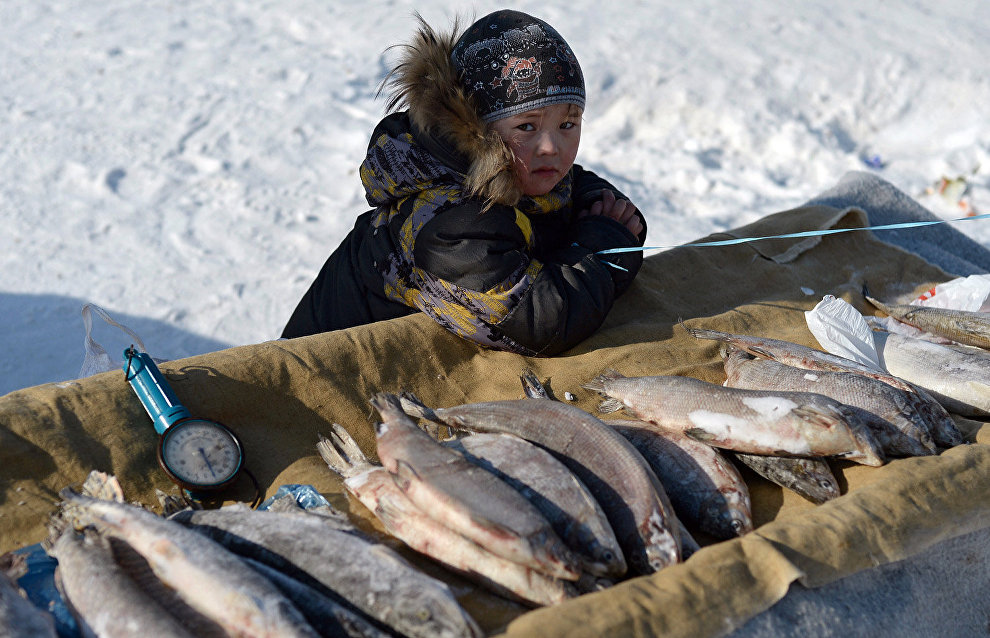Support program for the traditional activities of the Indigenous Ethnic Minorities of the North
In cooperation with the Human Capital Development Agency (HCDA), the Ministry for the Development of the Far East and Arctic has drafted a program of government support for the traditional economic activities of the Indigenous Ethnic Minorities of the North (IEMN).
According to the 2010 national census, the population of 19 indigenous peoples in the Russian Arctic numbered approximately 102,000 people. The law provides for 13 categories of traditional economic activity of these indigenous ethnic minorities, including cattle breeding, dog breeding, beekeeping, fishing and others that are not only the foundation of their livelihood but also a backbone of their culture, world outlook, folklore, rites, holidays, education, traditions and the continuity of generations.
However, there are many risks to the traditional economic activities of these indigenous people, such as extreme climate, a fragile Arctic ecosystem, low quality of education, and the absence of a year-round transport system, to name a few. As a result, the indigenous ethnic groups of the Arctic are not fully equipped to conduct competitive economic activities, although they are increasing the employment rates in small villages and towns.
The program for government support has been drafted to create conditions to increase the competitiveness of the goods and services produced by these indigenous people in the framework of their traditional economic activities and to create a sustainable foundation for their development. It provides for the creation and upgrade of the industrial and technological infrastructure, the promotion of indigenous goods in foreign markets, the development of tourism and personnel training, and the modernization of power generating facilities and expansion of the use of renewable energy sources, and mainstreaming business among the indigenous people.
Thus, to develop tourism in areas of traditional economic activity, the program envisages the annual selection of projects with a view to securing government support for their implementation with subsidies for promoting tourist services in foreign and domestic markets, including the publishing of this promotional information on domestic and regional information resources and digital services.
The authors of the program suggest that the indigenous people of the North should have the opportunity acquire the necessary skills and that the various Arctic universities should be involved, including Lomonosov Northern (Arctic) Federal University, Murmansk Arctic State University, the Institute of the Peoples of the North at the Herzen Russian State Pedagogical University, Ammosov North-Eastern Federal University, Arctic State University of Culture and Arts and Arctic State Agro-Technological University.
To adopt a consistent approach to education and personnel training, the program includes upgrading the material and technical plants of secondary vocational training and higher education institutions in the Russian Arctic and tailoring this system to the forecasted needs for specialists among the indigenous ethnic minorities. Government support must be granted to employers that sign targeted agreements on traditional economic activities.
The management company that is responsible for the territories of priority socioeconomic development and government support for entrepreneurs in the Russian Arctic will establish a center for developing traditional businesses. The center will consult indigenous people on how to start and run a business, accompany investment projects based on the one-stop-shop principle and oversee cooperation between entrepreneurs and development institutes and banks. The center will also create a system for supporting and promoting the export of goods and services produced by indigenous ethnic minorities as their traditional economic activity.
“Government support for traditional economic activities will make it possible to improve the living standards of the indigenous people in the Russian Arctic, and will encourage them to develop these activities and crafts and preserve their distinctive character and culture. To make the program an effective tool and to meet the requirements of those it will benefit, consultations will be held with representatives of the ethnic minorities and the regional authorities,” Minister for the Development of the Russian Far East and Arctic Alexander Kozlov said.
